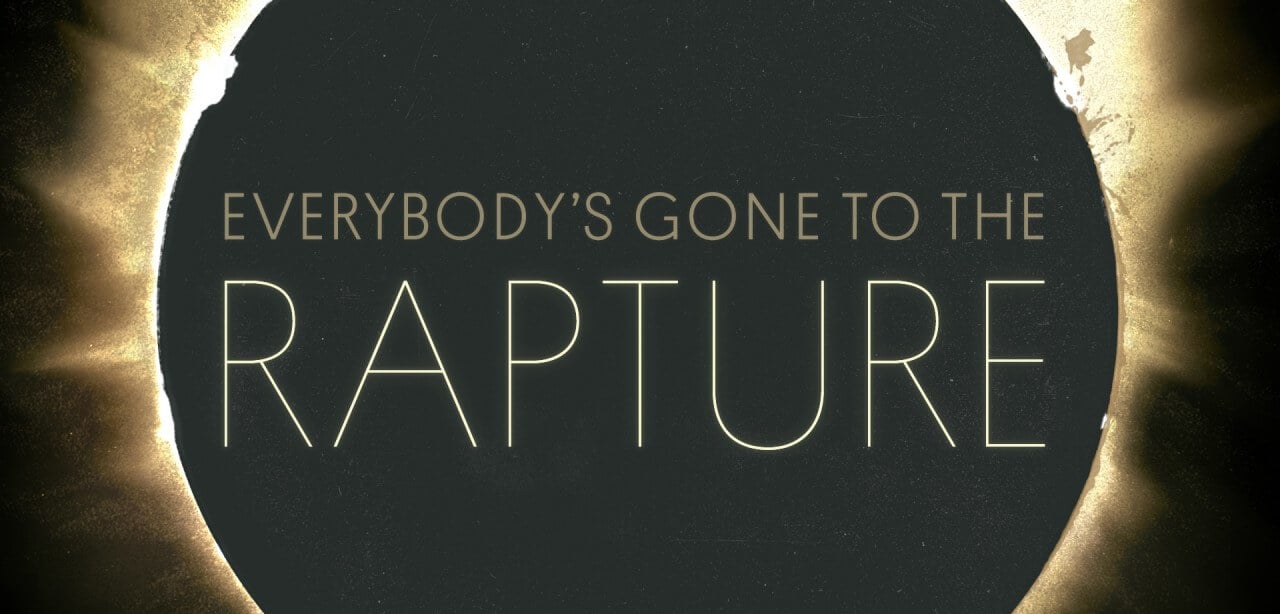Of the newest trends in gaming, the genre dubbed the “walking simulator” is the one that receives the most backlash, and usually the most critical acclaim. The term “walking simulator” is an unfair descriptor, but hard to argue against. Games like Gone Home, Dear Esther, and The Stanley Parable eschew traditional gameplay mechanics for simple exploration and storytelling. Walking around just happens to be the way these games allow players to explore their environment.
Developer The Chinese Room may be the most famous of the “walking simulator” developers. Their first game, Dear Esther, paved the way for many more like it, and the company has made a name for itself in the newly established genre. Their latest game, Everybody’s Gone to the Rapture, follows in Dear Esther’s footsteps. The game focuses on exploration and uses a non-linear storyline to tell the events of what happened in a small town in England’s Shropshire county.
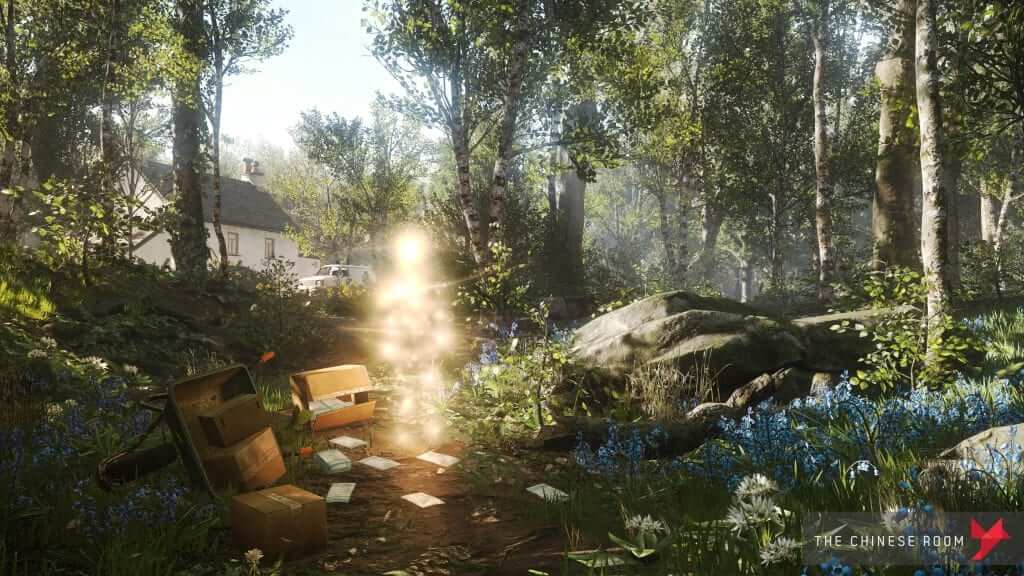
The player is tasked with exploring a deserted town and its outlying areas. The only directional hints come from a small orb of golden light that leads the player towards areas of interest. However, if players are to only follow this mysterious orb, much of the story will be missed. As a sort of paradox, going off the beaten path can lead to players accidently skipping ahead in the game. Each chapter of the game is titled with the name of one of the towns characters, and it’s possible to not complete any of the chapters and still reach the game’s ending, as evidenced by one of the game’s trophies.
Everybody’s Gone to the Rapture tells its story via memories that appear through holograms of light. The most important of these memories are accessed by using the PS4’s gyroscope control to tune pinpoints of light, but the reason behind this is vague and frankly unnecessary. More tidbits are revealed through answering phones and listening to radio broadcasts. It’s an interactive story, but unlike Dear Esther and Gone Home, it overstays its welcome.
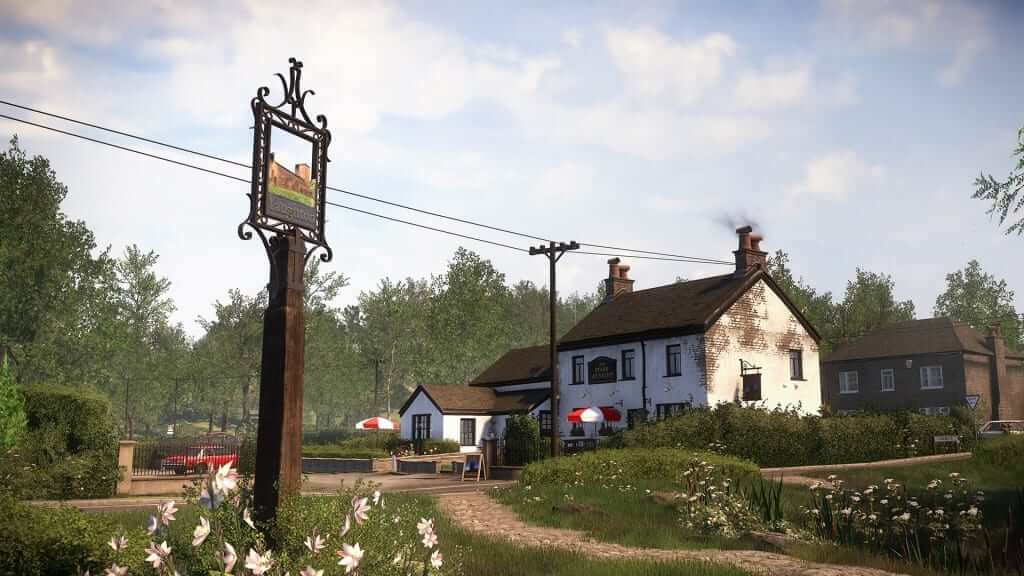
The game developers force players to play at a certain pace, evidenced by the frustratingly slow walking speed. Holding down the R2 button increases the speed slightly after a certain amount of time, but it’s not enough when backtracking through endless fields of wheat and past the same houses over and over again. The game wants you to admire its admittedly beautiful vistas, but admiration turns to frustration quickly when door after door is locked and long paths lead to the same deserted garden you’ve seen a million times before.
My playthrough of Everybody’s Gone to the Rapture took over six hours. I tried to explore all I could, but each secret path and doorway led to more disappointment. I could interact with certain objects like light switches and microwaves, but soccer balls stayed firmly in place no matter how hard I ran into them. It was a look, but don’t touch world, and after the first hour, there’s not much to look at. Houses all have the same layout and pieces of ephemera (flyers, pamphlets, and books) are repeated with little variety.
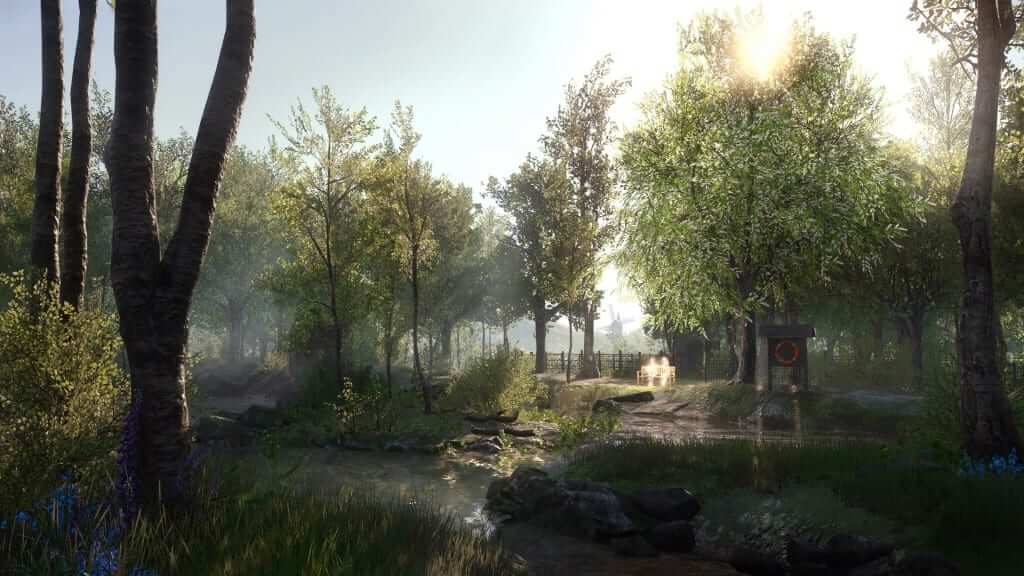
The story itself is more preoccupied with the drama of the occupants of the small town of Youghton than the story of the “rapture” itself. Players are forced to watch melodramatic love triangles and petty bickering more often than intriguing dialogue. There are some standout chapters, namely Wendy’s and Frank’s, but I was left cold most of the time as the music picked up during what the game was trying to signal as an emotional moment. I had very little connection to the faceless characters and their former lives. After a couple of chapters the game runs out of things to tell you, and starts repeating information. I could feel my interest in the overall intrigue of the “rapture” waning. I just wanted to be done with this stupid town and its annoying residents.
The graphics are beautiful and the soundtrack is divine, but it all amounts to a pretty coat of paint on an experience that feels hollow and drawn-out. The town is lifeless for a reason, but a game or any other narrative experience shouldn’t be. For fans of the genre, Everybody’s Gone to the Rapture may connect, but overall it doesn’t live up to previous “walking simulators” or even other games developed by The Chinese Room. For those who aren’t fans of the genre: Everybody’s Gone to the Rapture is simply an exercise in tedium.
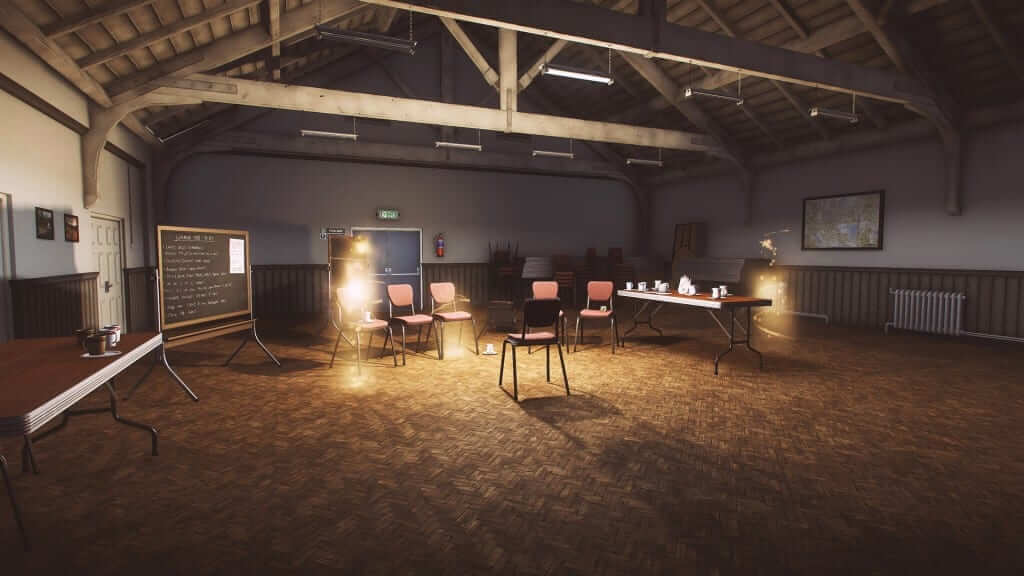
Everybody’s Gone to the Rapture is out now exclusively on the PS4 for $19.99.

